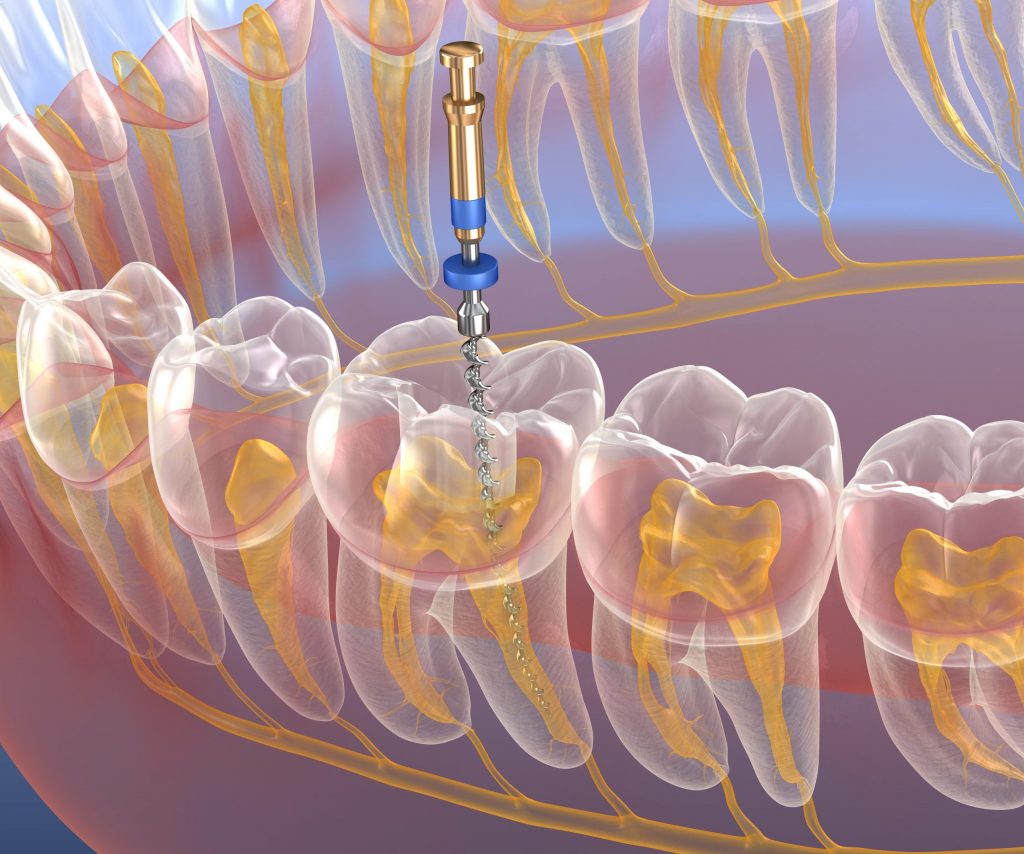Resource Library
Start Reading

Do you have an infected tooth that needs a root canal but are worried about experiencing pain afterward? You’re not alone. Studies show that 75% of people worry about pain after undergoing a procedure. Additionally, worrying beforehand has been shown to be a Catch-22 as it helps contribute to post-procedure pain.
Fortunately, getting the facts about why you need the root canal, what it entails, and if you need root canal pain relief can go a long way to help relieve anxiety and reduce the potential of discomfort afterward. Our goal at Penn Dental Family Practice (PDFP) is to provide the information you need to feel as comfortable as possible before, during, and after a root canal procedure so your outcome is as successful as possible.
Download this handy chart to get the answers you need to important questions about who to trust with your family’s oral health care.

 If your dentist or endodontist recommends a root canal, it’s probably because you’re suffering discomfort or pain in your tooth from an infection.
If your dentist or endodontist recommends a root canal, it’s probably because you’re suffering discomfort or pain in your tooth from an infection.
Symptoms you may have that could indicate the need for a root canal can include:
These may be signs that the pulp (the blood or nerve supply) of the tooth has become infected or injured. And, the most severe pain you experience may be now—before the root canal.
A root canal is an endodontic treatment that saves your tooth and prevents it from having to be extracted. Although they’ve gotten a bad rap in the past, with modern techniques and anesthetics, root canals are no more painful than a routine filling.
 When performing a root canal, a dentist or endodontist:
When performing a root canal, a dentist or endodontist:
Once treated, the tooth structure is restored and able to function normally.
On average, a root canal treatment lasts from 30 to 60 minutes.
The tooth treated in the root canal is being drilled into, and its pulp is being removed. Either or both steps can contribute to discomfort afterward.
 After a root canal, if there is any pain, it is usually mild and typically lasts for a few days. Most people experience less pain than they had before the treatment because the source of the infection has been removed. Only a small percentage, about 3% to 6%, classify their pain following the procedure as severe.
After a root canal, if there is any pain, it is usually mild and typically lasts for a few days. Most people experience less pain than they had before the treatment because the source of the infection has been removed. Only a small percentage, about 3% to 6%, classify their pain following the procedure as severe.
You might experience some tenderness or sensitivity up to a few days after your procedure. These tips can help relieve your discomfort:
If you continue to experience pain after a few days or your pain is severe, call your endodontist.
An endodontist is a root canal specialist. Endodontists receive an additional two to three years of specialized training (after dental school) specific to root canal treatments and other dental nerve damage.
At PDFP, our endodontists are highly skilled in utilizing the latest technologies to diagnose and treat patients. To minimize pain after a root canal procedure, schedule an appointment with one of our endodontists as soon as your dentist recognizes your need for a root canal to ensure your most positive experience and outcome.
If you’re still concerned about root canal pain relief or need an experienced endodontist, contact PDFP today! And, download our helpful chart, “The Evidence You Need To Pick The Right Dentist,” for answers to important questions about who to trust with your family’s oral healthcare.